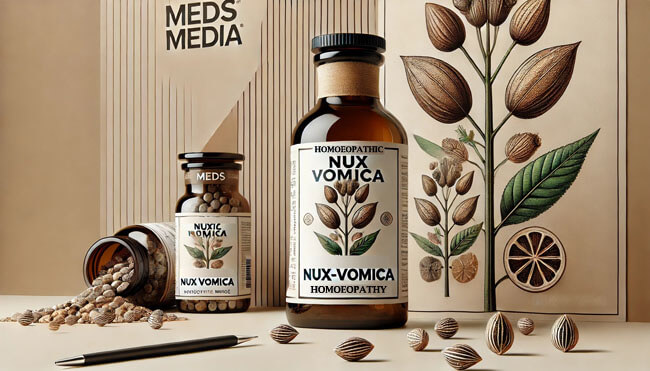In homeopathy, Syphilis refers to a miasm, or underlying chronic disease tendency, that originates from the effects of untreated or suppressed syphilis. This miasm represents the most destructive and degenerative aspects of disease. It is characterized by progressive degeneration, severe tissue damage, and profound mental and physical symptoms. Understanding Syphilis in homeopathy is crucial for addressing the chronic and destructive nature of this miasm effectively.
Origin of Syphilis Miasm
The Syphilitic miasm is believed to arise from the untreated or suppressed syphilis infections. Historically, syphilis has been associated with significant tissue destruction and systemic degeneration when not properly treated. This miasm embodies the chronic, degenerative changes that can occur in the body, leading to conditions marked by severe symptoms and progressive damage.
Characteristics of Syphilis Miasm
- Destructive Processes: The Syphilitic miasm is linked with severe tissue damage and degenerative changes. This includes ulcers, necrosis, bone deformities, and neurological issues.
- Rapid Progression: Conditions associated with this miasm often show rapid progression and severe manifestations, reflecting the deep-seated nature of the disease.
- Severe Symptoms: Symptoms are typically profound and destructive, including deep ulcers, bone pain, and severe systemic degeneration.
Mental and Emotional Symptoms
- Despair and Hopelessness: Individuals may experience profound feelings of despair and hopelessness.
- Suicidal Thoughts: There can be a presence of suicidal ideation or self-destructive behavior.
- Destructive Behavior: The miasm often manifests as destructive or self-sabotaging behavior patterns.
Physical Symptoms
- Ulcerations: Deep, destructive ulcers that can affect various parts of the body.
- Bone Pains and Deformities: Severe bone pain and deformities due to chronic degenerative processes.
- Necrosis: Tissue necrosis and progressive damage are common physical manifestations.
List of Syphilis Medicines
- Mercurius Solubilis
- Description: Used for deep, destructive ulcers and severe systemic symptoms, often with a marked foul discharge. Effective for conditions with severe bone pain and gum inflammation.
- Lachesis Muta
- Description: Known for its action on circulatory issues, used for conditions involving venous congestion, and severe symptoms exacerbated by sleep.
- Syphilinum
- Description: Specifically used for addressing the Syphilitic miasm, it helps in treating chronic conditions with degenerative changes and severe ulcerations.
- Kali Iodatum
- Description: Effective for conditions with bone pain and deformities, particularly those associated with systemic infections and degenerative changes.
- Calcarea Phosphorica
- Description: Used for bone pain and deformities, and conditions involving the gradual degeneration of tissues, particularly in children.
- Arsenicum Album
- Description: Suitable for conditions with severe, destructive ulcers and systemic weakness. It addresses symptoms with burning pain and exhaustion.
- Nitricum Acidum
- Description: Known for treating sharp, splinter-like pains, particularly in ulcers and mucous membranes, and for conditions with necrosis and deep tissue damage.
- Thuja Occidentalis
- Description: Used for skin conditions with destructive growths and warts, and systemic symptoms related to chronic infections.
- Graphites
- Description: Effective for skin conditions with thick, sticky secretions, and for chronic inflammatory issues with ulcerations.
- Sulphur
- Description: Addresses deep-seated systemic issues with intense itching, burning, and severe skin conditions, often exacerbated by heat.
- Carbo Vegetabilis
- Description: Used for systemic weakness and severe debilitation, including conditions with ulcers and necrotic changes.
- Natrum Muriaticum
- Description: Effective for chronic skin conditions, emotional suppression, and systemic issues with ulceration and necrosis.
- Pulsatilla
- Description: Suitable for conditions with hormonal imbalances and emotional changes, often accompanied by mucous membrane issues.
- Silicea
- Description: Known for its action on chronic conditions involving abscesses and chronic infections, addressing bone and tissue degeneration.
- Phosphorus
- Description: Effective for conditions with severe weakness and degenerative changes, particularly in the respiratory and gastrointestinal systems.
- Staphysagria
- Description: Used for emotional trauma, suppressed anger, and systemic issues with ulceration and inflammation.
- Clematis Erecta
- Description: Known for treating skin conditions with deep ulceration and burning pains, and for conditions involving tissue degeneration.
- Cinchona (China)
- Description: Effective for conditions with extreme weakness, especially following loss of fluids or chronic infections with severe debilitation.
- Colocynthis
- Description: Addresses abdominal colic and severe pain with relief from pressure, also used for systemic weakness and degenerative issues.
- Iodum
- Description: Used for conditions with excessive tissue destruction and systemic weakness, particularly in the thyroid and respiratory systems.
- Rhus Toxicodendron
- Description: Effective for joint pains and systemic issues exacerbated by damp conditions, often with a progressive, degenerative component.
- Bryonia Alba
- Description: Suitable for conditions with dry, painful symptoms, particularly those affecting the joints and respiratory system.
- Auricum Metalicum
- Description: Used for systemic degeneration with neurological issues and severe weakness, particularly affecting the heart and circulatory system.
- Ledum Palustre
- Description: Known for treating puncture wounds, bites, and systemic issues with pain and necrosis.
- Baryta Carbonica
- Description: Addresses developmental delays and chronic issues with bones and glands, useful for systemic degeneration in children.
- Crocus Sativus
- Description: Effective for conditions involving hemorrhage and severe emotional distress, including skin and mucous membrane issues.
- Sarsaparilla
- Description: Used for urinary tract issues, especially with intense pain and inflammation, and for chronic systemic degeneration.
- Zincum Metallicum
- Description: Known for its action on the nervous system, used for conditions with weakness, tremors, and progressive degeneration.
- Antimonium Crudum
- Description: Addresses conditions with thick, crusty discharges and digestive issues, and is used for systemic degeneration with ulcers.
- Euphrasia
- Description: Effective for eye conditions with profuse tearing and burning, and for conditions involving mucous membrane issues and systemic inflammation.
How Syphilis Works in Homeopathy
In homeopathy, the Syphilitic miasm is addressed by remedies that match the chronic, destructive nature of the miasm. These remedies aim to stimulate the body’s vital force to restore balance and healing. Treatment focuses on the profound degeneration and severe symptoms associated with this miasm, aiming to mitigate tissue destruction, manage severe systemic issues, and address the deep-seated emotional impacts.
Related links for Further Exploration:
Psora in Homeopathy
Sycosis in Homeopathy
Anti-Psoric in Homeopathy
Why Meds Media guides are different
We focus on clear, practical explanations of homeopathic and natural health topics so you can understand remedies, symptoms, and lifestyle changes in simple language.
Meds Media is an educational resource only. Always consult a qualified doctor or homeopathic practitioner before starting, stopping, or changing any treatment.
Similar Posts You may also like

LM Potencies in Homeopathy Explained | Insights from the 6th Edition of the Organon

Homeopathy Medicines for Pregnancy Care

Homeopathic Remedies Derived from the Fungi Kingdom

Homeopathic Remedies Derived from the Bacteria Kingdom
Source of Homoeopathic Medicine
What Are Common Symptoms of Autoimmune Disease?
Exploring Homeopathy as a Complementary Treatment for Cocaine Addiction
Homeopathy: More Than a Placebo – A Scientific Perspective
Twelve Tissue Remedies in Homeopathy: A Comprehensive Guide
Polycystic Ovary Syndrome (PCOS) Treatment in Homeopathy
Natrum Muriaticum Homeopathic Medicine & Personality | Uses, Benefits & Indications
Understanding Suicidal Conditions and Homeopathic Remedies

